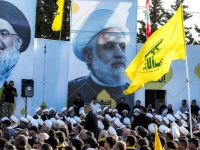Britain has ushered in a new chapter outside the European Union as Brexit was at last delivered, drawing a line under 47 years of membership.
On the stroke of 11pm last night, the UK officially divorced from the bloc after three years of bitter political struggle that split families and paralysed Westminster.
Jubilant Brexiteers heralded the moment with celebrations across the country, including a flagship bash in London's Parliament Square headlined by Nigel Farage.
Britain's last moments inside the EU were ticked off in a light show projected on to the famous black door of Downing Street, where Boris Johnson held a muted party for his staff after releasing a pre-recorded address to the nation.
The Prime Minister hailed the 'moment of hope, a moment many people thought would never come' and said Brexit would 'unleash' the UK's potential - but warned there will be more 'bumps in the road'.
Many Remainers are still deeply uneasy about severing ties with the bloc and are cautioning that the Brexit saga is not yet concluded.
Britain has now entered an 11-month transition period with the EU, during which time the government will race to strike a trade deal before December.
But any future wrangling with Brussels was far from the minds of revellers this evening, who waved Union Jacks and cheered triumphantly following victory speeches by key architects of Brexit including Mr Farage, who is no longer an MEP after being a disruptive force in the European Parliament for over 20 years.
The Brexit Party leader said: 'There is one thing above all we must celebrate tonight and it is this. The reason we are here tonight is because Westminster became detached from the people in this country.
'The people have beaten the establishment. The real winner tonight is democracy. And I am someone who believes we should be pro-Europe, but not the European Union.'
Choruses of God Save The Queen and The Land of Hope And Glory swung round Parliament Square, and were echoed in similar parties up and down the UK.
Brexit was also marked by Remainers - albeit with less fanfare - who mourned the end of the near half-century relationship with the bloc.
Those at a candlelit vigil held outside the Scottish Parliament in Edinburgh chanted 'we don't want your Brexit'.
And the moment was bitter-sweet for staff at the Department for Exiting the European Union, who have worked towards this day since established by Theresa May in 2016 only to be no longer needed.
On the white cliffs of Dover, the closest point of the UK peninsula to the European mainland, a farewell message was projected.
It followed a series of highly symbolic events earlier - the UK's flag was removed at the headquarters of the European Council in Brussels.
And the EU flag was taken down at the British government's building in the Belgian capital.
Former prime ministers Theresa May and David Cameron, who both fell on their swords because of Brexit, have intervened on the historic day.
Ms May said the occasion meant the government has 'kept the faith of the British people' while Mr Cameron was optimistic about the country's post-Brexit future.
Across the Channel, Emmanuel Macron lamented 'a sad day' as the UK left the EU.
But the French President could not resist firing a parting shot at Leavers who he said disseminated 'lies, exaggerations and simplifications' during the 2016 referendum.
Yet his scathing assessment would have fallen on deaf ears, as most of the core players in the Leave campaign were toasting in Brexit on Friday night.
In Parliament Square, speeches were made by former Brexit Party MEPs Ann Widdecombe and Richard Tice, and Wetherspoons boss Tim Martin.
The Prime Minister himself, eager to avoid appearing triumphalist, hosted a small gathering for his advisers in Number 10, where English sparkling wine was served.
However, his top aide Dominic Cummings did not appear in high spirits and was filmed snapping at a reporter who collared him outside a Pizza Express.
This morning Mr Johnson took his Cabinet to Sunderland, the first city to declare a majority for Leave in the 2016 referendum, in a symbol of his desire to reconnect with the north.
He told ministers the UK is starting a 'new chapter' and he would be 'going full steam ahead to bring the nation together', according to Downing Street.
He said the government would 'begin immediately - providing better healthcare and education, tackling violent crime and homelessness and delivering great new infrastructure'.
He also laid down the gauntlet to the EU over trade negotiations, saying the UK will seek a loose 'Canada-style' deal.
He also made clear the government will look to strike deals with other countries outside the bloc at the same time.
A No10 spokesman said he told the Cabinet that 'from tomorrow, the UK will also be free to begin trade negotiations with countries around the world - with the aim to have 80 per cent of our trade covered by FTAs within three years'.
In his address tonight, the PM stressed his belief that the referendum was a vote not just to leave the EU, but also for lasting change in neglected areas of the country.
He said: 'It is a moment of real national renewal and change. This is the dawn of a new era in which we no longer accept that your life chances – your family's life chances – should depend on which part of the country you grow up in.'
He made clear the government would focus on bringing about change for ordinary people, highlighting that ministers could now control immigration, do free trade deals, and 'liberate our fishing industry'.
'Now is the time to use those tools to unleash the full potential of this brilliant country and to make better the lives of everyone in every corner of our United Kingdom,' he said.
The EU and UK will use the standstill period over the next 11 months to try to hammer out the terms of their future relationship.
The UK is adamant a comprehensive deal can be struck by the end of the year but the EU is deeply sceptical and has called for an extension - something Mr Johnson has categorically ruled out.
On Monday Mr Johnson will deliver a major speech setting out his approach to the Brexit talks as well as detailing his plans for a period of national renewal.
Sources said he would be 'very frank' about his aims for the negotiations with Brussels and his determination to allow Britain to 'diverge' from EU rules, even if that means the introduction of some trade barriers.
Mr Johnson will also warn that failure to strike a trade deal by the end of the year would lead to the introduction of tariffs on goods entering from the EU, such as German cars, French cheese and Italian wines.
One government source said: 'Theresa May made two crucial mistakes – she wasn't clear about what she wanted, and she wasn't clear that she was prepared to leave with or without a deal.
'We are not going to make those mistakes. We want a good free trade deal, without alignment, but we are prepared to leave without one if we have to.'
Mr Johnson will also reject calls for the EU to be given automatic rights to UK fishing grounds – and for the European Court of Justice to be the arbiter of disputes arising from a new trade deal.
Mr Johnson has ordered only low key events to mark Britain's departure tonight.
Union flags have been put up in The Mall and around Parliament Square and there is a countdown clock and light show in Downing Street.
Leading Eurosceptic Steve Baker called for Brexiteers to avoid triumphalism, saying: 'I will celebrate in a way which is respectful of the genuine sorrow that others are feeling at the same time.'
However, fellow Brexiteer Peter Bone called for the introduction of a bank holiday named United Kingdom Day.
And Tory MP Mark Francois said he would be staying up all night to watch the 'sun rise on an independent country'.
Meanwhile, the EU has been mulling over the departure of one of its largest members.
French president Emmanuel Macron warned the UK's move was an 'historic alarm signal' that the bloc must reform - although he added that the Brexit campaign was based on 'lies'.
The three most senior figures in the EU institutions delivered a parting shot as they said 'size matters'.
President of the European Commission Ursula von der Leyen, president of the European Council Charles Michel and president of the European Parliament David Sassoli penned a joint article to mark Brexit.
They spoke of their 'fondness for the United Kingdom' and praised Britons for their 'creativity, ingenuity, culture, and traditions'.
But they could not resist putting the boot in as they suggested that on its own Britain will not be able to influence global affairs in the way that it has been able to as a member of the bloc.
They then used a press conference in Brussels to double down on the jibe as Ms von der Leyen said 'strength does not lie in splendid isolation'.
Former president of the European Council Donald Tusk tweeted his sadness at the UK's departure from the EU as he tweeted: 'My dear British friends. We were, we are, and we will always be a Community. And no Brexit will ever change that.'
A spokesman for German Chancellor Angela Merkel said the moment of Brexit would mark a 'sea change' for the EU.
'We regret [Brexit], and we think the majority of the German population feel the same, but we respect the decision,' Steffen Seibert said at a government press conference.
Berlin hopes Britain will continue to be a 'close partner and friend', Mr Seibert added.
Meanwhile, Britain's MEPs waved goodbye to the European Parliament this morning as they headed back to the UK.
The Brexit Party's contingent marked the occasion with a show of strength as they marched out of the building carrying a 'Brexodus Express' banner as Ann Widdecombe said: 'The MEPs leaving here today, our duty is done, our harvest is home and now we're off.'
Britain has finally left the European Union but its dealings with the bloc are far from over.
The last three years have almost entirely been about hammering out the terms of the UK's divorce from Brussels.
Now the two sides must try to agree all of the details of their future relationship before a standstill transition period ends in December.
The EU is adamant that 11 months is not enough time to get the job done, but Boris Johnson is refusing to agree to an extension, setting up a fresh Brexit 'cliff-edge' at the end of the year.
Here is a breakdown of all the key dates in the next chapter of the Brexit saga.
January 31, 2020: The UK formally leaves the European Union at 11pm after more than three years of tortuous wrangling. The two sides enter into a standstill transition period during which they will try to agree the terms of their post-Brexit relationship. EU rules will continue to apply to the UK for the duration of the transition. The Department for Exiting the European Union ceases to exist.
February 2020: The UK will be free to pursue trade deals with whoever it wants. Japan and the US are expected to be Britain's top targets with initial talks likely to start immediately after Brexit. The UK will also want to kickstart talks with the EU - but the bloc will make Britain wait.
End of February/early March 2020: Before trade talks can start between the UK and the EU, the bloc must agree a negotiating mandate. This mandate will set out the broad terms of what the EU will be striving for during negotiations and will also spell out Brussels' red lines. European Commission president Ursula von der Leyen has suggested the mandate may not be finalised until the end of February or early March.
March 2020: Formal trade talks between the UK and the EU are expected to begin. A group of 40 officials called 'Taskforce Europe' and based out of the Cabinet Office will lead negotiations for the UK. The taskforce will be headed up by David Frost, a diplomat and one-time business lobbyist who was appointed Mr Johnson's Europe adviser last year. Mr Frost is expected to negotiate directly with the EU's chief Brexit negotiator Michel Barnier.
April/May 2020: Trade talks between the UK and EU - as well as talks with other nations - will intensify. If major progress has not been made with Brussels then there is likely to be increasing pressure on Mr Johnson to agree to extend the transition period. The terms of Britain's divorce from the bloc state that the standstill will finish on December 31 and the PM has been adamant he will not agree to an extension. But the Withdrawal Agreement does include a pressure valve mechanism which states that the transition can be prolonged by one or two years if both sides agree. The EU has already said it does not believe the transition period is long enough to finalise a comprehensive agreement so if talks stall in the first half of the year then Brussels could step up demands for a delay.
June/July 2020: The Withdrawal Agreement states that a decision to extend the transition period must be agreed by both sides before July 1, 2020 if it is to go ahead. The PM is expected to stick to his guns and refuse to agree to a delay, setting the stage for transition to end in December, with or without a full deal in place.
July to November 2020: Assuming no transition extension has been agreed, the second half of the year will be fraught with activity as the UK and EU rush to get everything decided. The UK will also be hoping that by this time agreements with Japan and the US will be taking shape, putting pressure on Brussels to work quickly.
September/October 2020: Downing Street is thought to want to have a trade deal with Japan in the books by the autumn to show the EU and the rest of the world it means business. It would be the UK's first post-Brexit trade deal.
November 3, 2020: The date of the US presidential election. The White House has said it wants a trade agreement with the UK in place before the end of the year and will not want talks to clash with Donald Trump's bid for re-election. That means a US-UK trade deal could be done and dusted before November.
December 2020: The UK and EU will either be on course to end the transition period with a full agreement in place or just a partial agreement. EU bosses have suggested that a lack of time will mean having to prioritise certain issues during talks, potentially leaving others to be resolved at a later date. The UK believes it is possible to get everything done. If no extension has been agreed then the two sides will be going their separate ways regardless.
December 31, 2020: The point at which the Brexit transition period will come to an end and when EU rules and regulations will cease to apply to the UK.
January 1, 2021: EU freedom of movement will be brought to an end and the UK's new post-Brexit immigration system will be rolled out. The Australian-style points-based system is expected to treat migrants from across the world the same, ending preferential treatment for those from Europe.
Britain enters a new era tonight after nearly four years of intense civil war over whether Brexit should happen.
Since the beginning of 2016, politicians have been engaged in a bitter struggle for the soul of the country.
The period has been among the most dramatic in the UK's history - with three Prime Ministers, a referendum and two elections.
The deadlock was finally broken on December 12, when Boris Johnson won a stunning Tory majority with his simple message of: 'Get Brexit done.'
Here are some of the key dates as the chaos unfolded.
February 20, 2016: David Cameron announces the date for the referendum on whether to leave the EU.
June 23, 2016: The UK votes to leave the EU.
July 13, 2016: Theresa May becomes PM after seeing off challenges from Boris Johnson and Michael Gove.
March 29, 2017: Mrs May formally notifies the EU that the UK is triggering the Article 50 process for leaving the bloc.
June 8, 2017: The Tories lose their majority in the snap election called by Mrs May in a bid to strengthen her hand on Brexit. Mrs May manages to stay in power propped up by the DUP.
July 12, 2018: Mrs May forces her blueprint for the future relationship with the EU through Cabinet during lengthy talks at Chequers. But both David Davis and Boris Johnson resign afterwards.
November 2018: Mrs May finally strikes a Withdrawal Agreement with the EU, and it is approved by Cabinet - although Esther McVey and Dominic Raab resign.
December 2018: Mrs May sees off a vote of no confidence in her leadership triggered by Tory MP furious about her Brexit deal.
January 15-16, 2019: Mrs May loses first Commons vote on her Brexit deal by a massive 230 votes. But she sees off a Labour vote of no confidence in the government.
March 12, 2019: Despite tweaks following talks with the EU, Mrs May's deal is defeated for a second time by 149 votes.
March 29, 2019: Mrs May's deal is defeated for a third time by a margin of 58 votes.
May 24, 2019: Mrs May announces she will resign on June 7, triggering a Tory leadership contest.
July 23-24, 2019: Mr Johnson wins the Tory leadership battle after solemnly vowing that Brexit will not be extended beyond October 31, and becomes PM the following day.
August 28, 2019: Mr Johnson announces he wants to prorogue Parliament from September 10.
September 3-4, 2019: MPs seize control of Commons business and pass a law requiring a Brexit extension to avoid No Deal. Mr Johnson tries to call a snap general election but does not secure the two-thirds majority of MPs needed.
September 24, 2019: The Supreme Court declares the prorogation of Parliament illegal.
October 21, 2019: Mr Johnson strikes a new Brexit deal with the EU, incorporating many elements of Mrs May's but deleting the Northern irish backstop and proposing a much looser alignment.
October 22, 2019: MPs approve Mr Johnson's deal at second reading stage in a major breakthrough - but they vote down his proposed timetable and vow to try to amend the Bill later. The PM responds by pausing the legislation and again demanding an election.
October 29, 2019: MPs finally vote for an election, after the SNP and Lib Dems broke ranks to vote in favour, forcing the Labour leadership to agree.
December 12, 2019: The Tories win a stunning 80 majority after vowing to 'get Brexit done' during the campaign. Jeremy Corbyn's Labour records its worst performance since 1935 after he sits on the fence over Brexit, saying there should be a second referendum and he wants to remain neutral.
December 20, 2019: The new-look Commons passes Mr Johnson's Withdrawal Bill by a majority of 124.
January 9: EU Withdrawal Agreement Bill cleared its Commons stages, and was sent to the House of Lords.
January 22: The EU Withdrawal Bill completed its progress through Parliament after the Commons overturned amendments tabled by peers, and the Lords conceded defeat.
January 24: Mr Johnson signs the ratified Withdrawal Agreement in another highly symbolic step.
January 29: MEPs approve the Withdrawal Agreement by 621 to 49. Amid emotional scenes in Brussels, some link hands to sing a final chorus of Auld Lang Syne.
11pm, January 31: The UK formally leaves the EU - although it will stay bound to the bloc's rules for at least another 11 months during the transition period.
This article has been adapted from its original source.










